I. Introduction
Explanation of SEO
Why SEO is important for businesses
II. Understanding Search Engine Optimization
Definition of SEO
Importance of SEO for website traffic
Common misconceptions about SEO
III. Keyword Research
Definition of keywords
Importance of keyword research
How to conduct keyword research
Best practices for keyword usage
IV. On-Page Optimization
Importance of on-page optimization
Title tags and meta descriptions
Header tags
URL structure
Internal linking
Image optimization
V. Off-Page Optimization
Importance of off-page optimization
Link building strategies
Social media and SEO
Importance of quality content
VI. Technical SEO
Definition of technical SEO
Website speed and performance
Mobile Optimization
Site architecture
Schema markup
VII. Local SEO
Definition of local SEO
Importance of local SEO for small businesses
Google My Business
NAP consistency
VIII. Measuring SEO Success
Importance of measuring SEO performance
Google Analytics
Google Search Console
IX. Conclusion
Final thoughts.
Introduction
Having a strong online presence is crucial for businesses of all sizes. Search Engine Optimization (SEO) is the process of optimizing your website’s content and structure to improve its ranking on search engine results pages (SERPs). By increasing your website’s visibility on search engines, you can attract more organic traffic to your website and drive more leads and sales for your business.
Explanation of SEO
SEO, or Search Engine Optimization, is the process of optimizing a website to increase its visibility and ranking on search engines like Google, Bing, and Yahoo. The aim is to attract more organic traffic to the website and ultimately drive conversions. SEO is a combination of on-page optimization, off-page optimization, and technical optimization. It involves understanding the algorithms used by search engines and applying strategies to make a website more search engine friendly.
Why SEO is important for businesses
By improving your search engine ranking, you can attract more qualified leads to your website, build brand awareness, and ultimately increase your chances of converting those leads into customers. SEO is a cost-effective way to drive organic traffic to your website and compete with larger businesses in your industry. Additionally, by optimizing your website for search engines, you can improve the user experience for your website visitors and make it easier for them to find the information they’re looking for.
Check out this related blog post – How to Conduct an SEO Audit for Your Website
Understanding Search Engine Optimization
How search engines work
Search engines use complex algorithms to determine which websites should appear at the top of search engine results pages (SERPs). These algorithms take into account factors like relevance, authority, and usability. When a user types a search query into a search engine, the search engine scans its index of websites to find the most relevant results. The search engine then ranks these results based on a variety of factors, including keyword relevance, content quality, and inbound links.
Importance of SEO for website traffic
SEO is important for website traffic because it helps businesses attract more qualified leads to their websites. By optimizing their websites for search engines, businesses can improve their visibility on SERPs and increase the chances of users clicking through to their website. With more website traffic, businesses can generate more leads and sales, increase brand awareness, and ultimately grow their bottom line.
Common misconceptions about SEO
There are many misconceptions about SEO, such as the belief that it’s a one-time fix or that it’s only about keyword stuffing. Some people also believe that SEO is a black hat practice that involves spammy tactics to manipulate search engine rankings. In reality, SEO is an ongoing process that requires a combination of technical optimization, content creation, and link building. Additionally, SEO is about creating high-quality content that provides value to users, rather than simply stuffing keywords into a page.
Keyword Research
Definition of keywords
Keywords are words or phrases that users enter into search engines to find information. For example, if someone is looking for a new pair of shoes, they might enter the keywords “running shoes” or “Nike shoes” into a search engine. Keywords are a crucial aspect of SEO because they help search engines understand the content of a website and determine which search queries the website is relevant to.
Importance of keyword research
Keyword research is important because it helps businesses identify the keywords and phrases that their target audience is searching for. By identifying these keywords, businesses can create content that is optimized for search engines and more likely to appear at the top of SERPs. Additionally, keyword research can help businesses identify gaps in their content strategy and create content that addresses the needs and interests of their target audience.
How to conduct keyword research
There are several tools and techniques that businesses can use to conduct keyword research. One popular tool is the Google Keyword Planner, which provides data on keyword search volume, competition, and other metrics. Other tools include SEMrush, Ahrefs, and Moz Keyword Explorer. When conducting keyword research, it’s important to focus on long-tail keywords, which are more specific and less competitive than short-tail keywords.
Best practices for keyword usage
Once you’ve identified your target keywords, it’s important to use them strategically throughout your website. This includes incorporating keywords into your website’s meta tags, headers, and content. However, it’s important to avoid keyword stuffing, which is the practice of overusing keywords in an attempt to manipulate search engine rankings. Instead, focus on creating high-quality content that provides value to your target audience and incorporates keywords in a natural, organic way.
On-Page Optimization
Importance of on-page optimization
On-page optimization refers to the process of optimizing individual web pages to improve their search engine rankings and drive more traffic to a website. On-page optimization includes elements such as title tags, meta descriptions, header tags, and URL structure. It is an important aspect of SEO because it can help search engines better understand the content of a website and improve the user experience for visitors.
Title tags and meta descriptions
Title tags and meta descriptions are HTML elements that provide information about the content of a web page to search engines and users. The title tag appears at the top of a web browser and in the search engine results page (SERP) as the clickable headline for a given result. The meta description appears below the title tag in the SERP and provides a brief summary of the content of the web page. Optimizing title tags and meta descriptions with relevant keywords and engaging language can help improve click-through rates and drive more traffic to a website.
Header tags
Header tags, such as H1, H2, and H3, are HTML elements that provide structure and hierarchy to the content of a web page. Header tags help search engines understand the main topics and subtopics of a web page and can improve the readability and user experience for visitors. Using header tags strategically and incorporating relevant keywords can help improve the search engine rankings of a website.
URL structure
URL structure refers to the format and organization of the web addresses for individual web pages. A clear and concise URL structure can help search engines and users understand the content of a web page and improve the user experience. It is important to use descriptive and relevant keywords in the URL structure to help improve search engine rankings.
Internal linking
Internal linking is the practice of linking to other pages within a website. Internal linking can help improve the user experience by providing visitors with additional relevant content and can also help search engines understand the content and structure of a website. It is important to use relevant and descriptive anchor text when linking to other pages within a website.
Image optimization
Image optimization refers to the process of optimizing images on a website to improve their search engine rankings and page load times. This includes using descriptive file names and alt tags, compressing images to reduce file size, and using appropriate image dimensions. Optimizing images can help improve the overall user experience and increase the visibility of a website in search engine results pages.
Off-Page Optimization
Importance of off-page optimization
Off-page optimization refers to the activities that take place outside of a website to improve its search engine rankings and drive more traffic. Off-page optimization includes factors such as backlinks, social media signals, and the overall online reputation of a website. It is an important aspect of SEO because it can help search engines understand the authority, relevance, and trustworthiness of a website.
Link building strategies
Link building is the process of acquiring backlinks, or links from other websites, to a website. Backlinks are an important ranking factor for search engines because they indicate the authority and relevance of a website. There are several strategies for building backlinks, including creating high-quality content, guest blogging, and outreach to relevant websites. It is important to focus on quality over quantity when building backlinks to avoid penalties from search engines.
Social media and SEO
Social media can indirectly impact the SEO of a website by driving traffic, increasing brand awareness, and generating backlinks. Social media signals, such as likes, shares, and comments, can also indicate the popularity and relevance of a website. It is important to have a strong social media presence and to share high-quality content to improve the overall online reputation of a website.
Importance of quality content
Quality content is a crucial factor in both on-page and off-page optimization. Creating high-quality content that is informative, engaging, and relevant can help improve the user experience and drive more traffic to a website. Quality content is also more likely to be shared and linked to by other websites, which can improve the overall online reputation and search engine rankings of a website. It is important to prioritize quality content over keyword stuffing or other black hat SEO tactics.
Technical SEO
Definition of technical SEO
Technical SEO refers to the process of optimizing a website’s technical aspects to improve its search engine rankings and user experience. Technical SEO includes factors such as website speed, mobile optimization, site architecture, and schema markup.
Website speed and performance
Website speed and performance are crucial factors in technical SEO. A website that loads quickly and performs well can improve the user experience and increase the likelihood of visitors staying on the website. To improve website speed and performance, it is important to optimize images, minify code, and use a content delivery network (CDN) to reduce server response time.
Mobile optimization
Mobile optimization is another important factor in technical SEO. With the increasing use of mobile devices, search engines prioritize websites that are mobile-friendly and provide a good user experience on mobile devices. To optimize for mobile, it is important to use responsive design, optimize images for mobile devices, and prioritize mobile page speed.
Site architecture
Site architecture refers to the way a website is structured and organized. A well-organized site architecture can help search engines understand the hierarchy and importance of different pages on a website, which can improve search engine rankings. To optimize site architecture, it is important to use clear and descriptive URLs, create a logical hierarchy of pages, and use internal linking to guide visitors through the website.
Schema markup
Schema markup is a type of structured data that can be added to a website to help search engines understand the content and context of a page. Schema markup can improve search engine rankings by providing more information about a page’s content, such as its type, author, and publication date. To optimize schema markup, it is important to use a consistent and structured format, and to follow the guidelines provided by search engines.

Local SEO
Definition of local SEO
Local SEO refers to the process of optimizing a website for local search results. Local SEO is particularly important for small businesses that serve a specific geographic area. Local SEO includes factors such as Google My Business, NAP consistency, and local citations.
Importance of local SEO for small businesses
Local SEO is essential for small businesses that want to attract customers from a specific geographic area. By optimizing for local search, businesses can increase their visibility in local search results, improve their online reputation, and attract more local customers.
Google My Business
Google My Business is a free tool provided by Google that allows businesses to manage their online presence across Google, including in search results and on Google Maps. By creating and optimizing a Google My Business listing, businesses can improve their visibility in local search results and provide important information to potential customers, such as their hours of operation, phone number, and reviews.
NAP consistency
NAP consistency refers to the accuracy and consistency of a business’s name, address, and phone number across the web. NAP consistency is important for local SEO because search engines use this information to determine the relevance and credibility of a business. To improve NAP consistency, it is important to ensure that the business’s name, address, and phone number are consistent across all online directories, social media profiles, and other online platforms.
Measuring SEO Success
Importance of measuring SEO performance
Measuring SEO performance is essential for understanding the effectiveness of your SEO efforts and making data-driven decisions to improve your website’s search engine ranking. Measuring SEO success can help you identify areas for improvement, track progress over time, and justify your investment in SEO.
Google Analytics
Google Analytics is a free tool provided by Google that allows you to track and analyze website traffic. By using Google Analytics, you can monitor key metrics such as organic traffic, bounce rate, time on site, and conversion rate. You can also use Google Analytics to set up goals and track specific actions on your website, such as form submissions or product purchases.
Google Search Console
Google Search Console is a free tool provided by Google that allows you to monitor and maintain your website’s presence in Google search results. By using Google Search Console, you can identify technical issues that may be impacting your website’s search engine ranking, monitor your website’s performance in search results, and submit sitemaps for crawling. Google Search Console also provides important information about search queries, impressions, and click-through rates.
Conclusion
In conclusion, Search Engine Optimization (SEO) is a powerful tool that can help you improve your website’s search engine ranking and drive more traffic to your site. By understanding the fundamentals of SEO, conducting keyword research, optimizing your on-page and off-page factors, ensuring your website is technically sound, and measuring your SEO success, you can achieve great results and take your business to the next level.
While SEO can seem overwhelming at first, remember that it’s a long-term investment that requires patience and persistence. By continually refining your SEO strategy and staying up-to-date with the latest best practices, you can see significant improvements in your website’s search engine ranking over time.
So, whether you’re just getting started with SEO or you’re looking to improve your existing strategy, take action today and start implementing the tips and strategies outlined in this article. With dedication and effort, you can achieve great results with SEO and take your business to new heights.
Related Blog Posts –
How to Increase Your ROI Through scientific SEM?
The Art of Link Building: How to Build High-Quality Backlinks
















